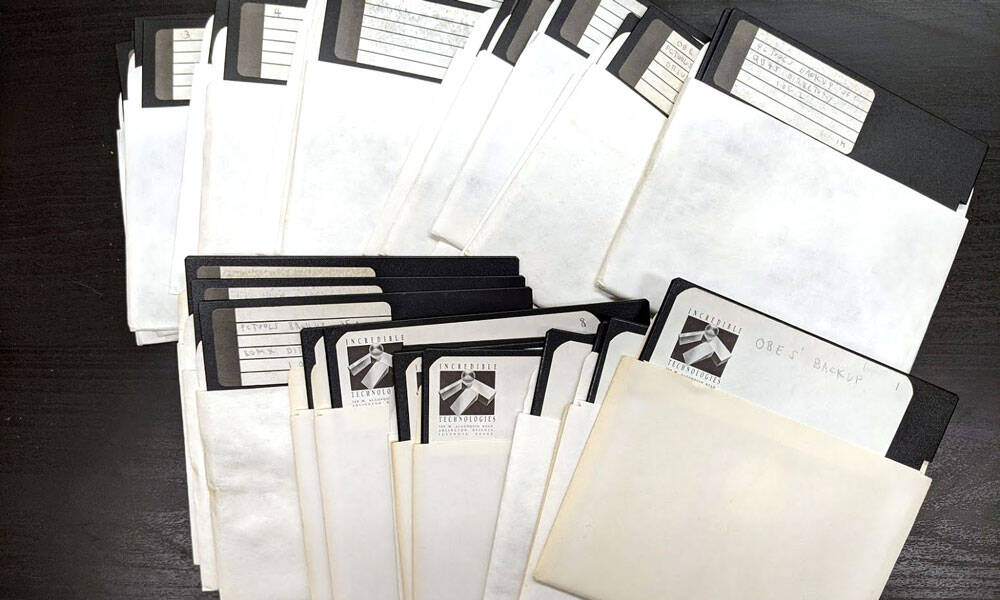
Weekly Now: Protecting Digital History at the Source
The Video Game History Foundation expands its archival efforts to video game source materials. Also: the association that set a Guinness World Record for its recent virtual event.
Historic preservation efforts in the video game industry just got a huge boost from a nonprofit that launched only three years ago.
The Video Game History Foundation has led efforts to preserve media assets that others might have thrown away, along with the archives of a popular magazine, and even a version of the classic game SimCity that had never seen the light of day.
And now, the foundation is expanding its efforts to preserve the building blocks behind some of the most popular games ever—and perhaps some less popular ones, too.
Last week, the foundation announced the Video Game Source Project, a plan to preserve source materials from completed video games. This may include not only literal source code but also notes, research, or graphical materials left behind during the creation of a game. This material, says the foundation’s founder and codirector, Frank Cifaldi, is often at the highest risk of being lost.
“Source material that is past its prime is often forgotten or, worse, destroyed, since long-term archival practices within the commercial industry are incredibly rare,” Cifaldi wrote in a blog post. “We have lost countless archives due to office moves, closures, accidents, theft, and forgotten knowledge—there might not be anyone left on staff who remembers where the old files are, or how to retrieve them.”
The foundation’s inaugural project for this endeavor will involve a deep dive into The Secret of Monkey Island, a point-and-click adventure game first made for the IBM PC in 1990 by Lucasfilm Games. The foundation will look at the source code with the game’s creator, Ron Gilbert, during a virtual event October 30.
Other news highlights:
Fighting online misinformation. With an eye toward older Americans, a coalition of media and academic groups is upping its efforts to fight misleading news online. The Trusted Journalism Partnership recently announced its #TrustedJournalism campaign. As the partnership notes, while most people do not share misinformation, Facebook users ages 65 and older are seven times more likely to do so—hence the focus on older audiences. “We want to help people sort fact from fiction at a time when they are bombarded with disinformation,” says Dan Shelley, executive director and chief operating officer of the Radio Television Digital News Association, in a news release. Campaign materials are available online.
Big-box pushback. With many people still wary of going into stores, the American Booksellers Association is trying to make a case for the little guy. Last week, ABA announced its #BoxedOut campaign to encourage shoppers to visit independent bookstores. The campaign includes a pop-up storefront component, which highlights the risks that online shopping might have for local stores—particularly those that sell books.
A Guinness-Certified Virtual Event
If you happened to attend the Internet Marketing Association’s IMPACT 20 virtual conference October 2, you helped to make some history, according to Guinness World Records.
The record trackers say IMPACT 20 set the record for being the largest virtual marketing conference in a single week, with more than 117,000 registrants and 11,000 engagements. In a news release, IMA Chairman Sinan Kanatsiz noted that setting the record underlined what was a complex event to plan.
“In our two-decade history, this event was the most thrilling, exciting, challenging yet motivating experience for IMA to date,” Kanatsiz said.
Watch the award win above.
ICYMI …
Is it so dangerous, you’ll have to sign a waiver? That’s a COVID-19 challenge that association chapters are currently facing.
Can an influencer boost your advocacy? Check out our list of tips on how to pull off a #TeamTrees-like success story.
How should you staff your virtual event? Our very own Samantha Whitehorne has a few ideas.
The Video Game History Foundation recreated the unreleased NES game “Days of Thunder” from the source code on these disks. (Handout photo)






Comments